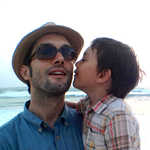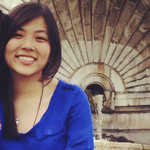

Breakfast.
September 30th, 2013, 9pm
It was 8°C with clouds and visibility OK. The breeze was gentle.
“Being alone lets you develop, become strange, be mad. If to be with people is to be socialized, to submit your rough edges to the whetstone of others’ desires, to be asocial is to be ragged and, thus, original.” — Susan Sontag
“It’s July of 1966, and she is at a hotel. She drinks her coffee, eats “two boiled eggs, Prague ham, [a] roll with honey,” and finds herself content for the first time in months. She doesn’t feel distracted or inhibited, and she doesn’t feel childish; instead she feels “tranquil, whole, ADULT.” Her novel may be stalled, her heart recently broken, but for a minute or two, sitting by herself at a table covered by a spotless tablecloth, her son asleep upstairs, she is at ease. She sounds hopeful, even pleased with herself. “I must learn to be alone—” she vows. Yet the resolution is less than persuasive, provoked, as it seems, by necessity. Eleven years later, when her relationship to a woman named Nicole has foundered, she is still telling herself the same thing: “Remember: this could be my one chance, and the last, to be a first-rate writer. One can never be alone enough to write.” One function of the declaration is clear: to convince herself there can at least be a purpose to her unhappiness in love.”
Why say what others have said better?
Filed Under
Other moments in Berlin
-
Philosophy, Thoughts, farewell
Everlasting Constants
in Berlin, Germany -
Memories, Travel, running
An Ode to a Shoe.
in Berlin, Germany -
Philosophy, Family, religion
The Permanence of Impermanence
in Berlin, Germany -
Brunch, City Life, Culture
Sunday ritual
in Berlin, Germany -
friendship, home, Depression
Friendship is not developed though time, rather moments of time.
in Berlin, Germany -
Only Bumping Boats
in Berlin, Germany -
Germany, Australia, history
German lessons at the Jewish Museum
in Berlin, Germany -
6/7. The City of the Kaiser Chiefs. The architecture and history is often overshadowed by the Nazis and the East/West Cold war era...
in Berlin, Germany -
religion, Family, Empathy
A Candle for Your Thoughts
in Berlin, Germany









